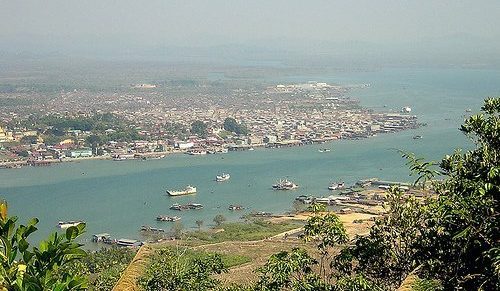Myanmar – Saviour to oil & gas in SE Asia or in the “too hard” basket?

International companies will not shy away wholesale from Myanmar exploration and production projects despite a collapse in global crude oil prices, according to experts.
This topic was discussed in the recent 5th Myanmar Oil and Gas Conference in Yangon on January 29, and would suggest that there is significant potential upside for early movers within this market.
By way of background information, the country has proven Oil Reserves of 50 million barrels and Gas reserves of 10 trillion cubic feet. Furthermore, there are currently 17 onshore and four offshore oil and gas projects producing in Myanmar. The country is currently producing 8000 barrels per day of crude and 55 million cubic feet of natural gas from onshore projects. It also produces 7000 barrels of condensate and 2 billion cubic feet of natural gas from offshore projects, according to information from the Ministry of Energy.
A further 30 Offshore blocks have been added, with 11 operating in shallow and 19 being in deep water. At present, the sector is serviced by a poorly maintained single marine base facility in Thakita.
Whilst Myanmar is not immune to what happens in the international market as a result in the declining oil price, it does occupy a strategic importance particularly when one takes into account the crowded shipping channel that is the Malacca straits. Furthermore, many of the projects are still at the early stages of planning and are years away, with existing production in the country is largely natural gas rather than crude oil, that does insulate the Country from the full impact of the collapse.
It also prudent to note that most petroleum companies are confident and stating that they are not scaling back their local plans. Potentially service companies face risk , there is relative confidence in the market when you get the likes of Petronas claiming that they have no plans at the moment to reduce production at its Yetagun project, one of Myanmar’s large offshore gas production fields.
Recent trends that confirms confidence in future growth and upside potential for Oil and Gas and service providers include the following:
- The first direct container shipment this month from China to Myanma Industrial Port, reducing shipping time from the 18 to 25 sailing days via Sgp, to 13 days
- The opening and production of the China / Myanmar gas pipeline in February 2015 will increase demand for Gas from China as it secures its energy sources and works to move its energy platform to cleaner burning fuels
- Since the liberalisation of the political system, the FDI as of December 2014 has seen US$42b invested by 31 Countries
- The important offshore production sharing agreements, between international companies, their local partners, and Myanmar Oil and Gas Enterprise, particularly the recent Shell / Mitsui Oil /MOGE PSC for exploration in 3 deepwater blocks in the Rhakine and Thanintharyi Basins, covering 21,000 square miles and water depths of 1800 to 2700 ft. This over and above the agreements signed between Indian / Singapore Companies for development in the Mottana offshore blocks,
- Announcement of a JV between the Italian Thai Development PLC and the Rojana Industrial Park for the US$1.7bn development of the Dawei special economic zone that includes a 250 sq km deep sea port, Petrochemical facilities and Heavy Industry hub’
- The US$175.4million JV between Myanma Shipyards and a Vietnamese shipbuilder to increase shipbuilding capability of new builds to 22,000dwt and repairs to vessels of 30,000dwt.
Whilst there are still infrastructure and socio – political issues that are challenging , I believe that these can be effectively managed, just as you would do so in any other developing Nations. The real question to be answered is does Myanmar offer enough upside reward in economic terms versus the associated risk? I would suggest it emphatically an attractive investment opportunity, especially if one is an early mover and is a participant in the economic transition from the outset. Asia Pacific Connex offers specialist services in facilitating this participation and has access to strategic land (12,000 acres) in the only MOGE / Oil and Gas supply base in the country.
